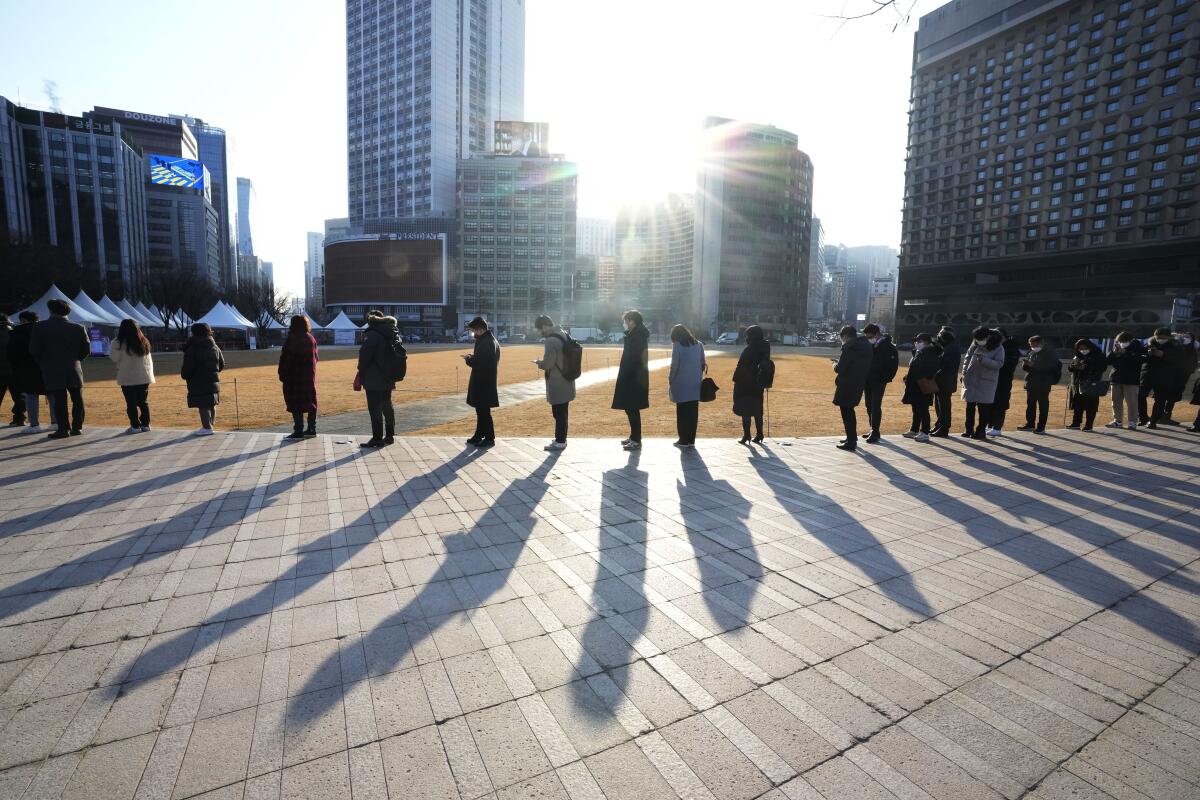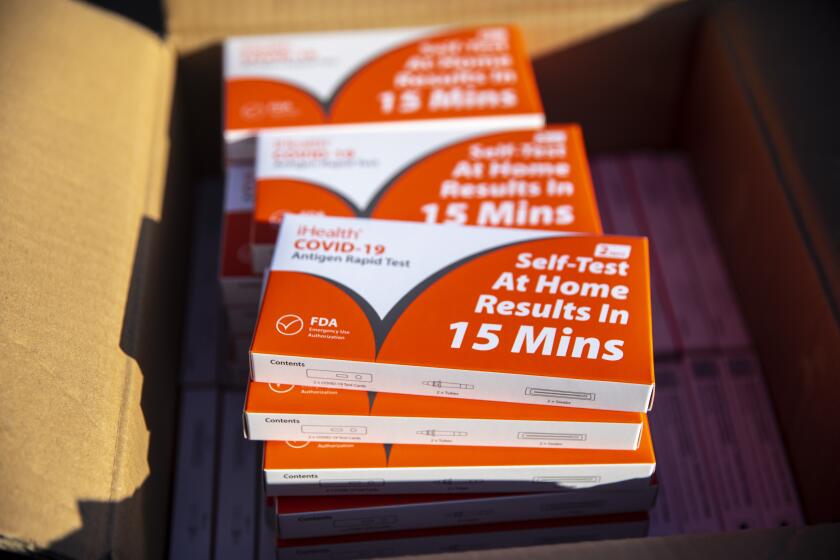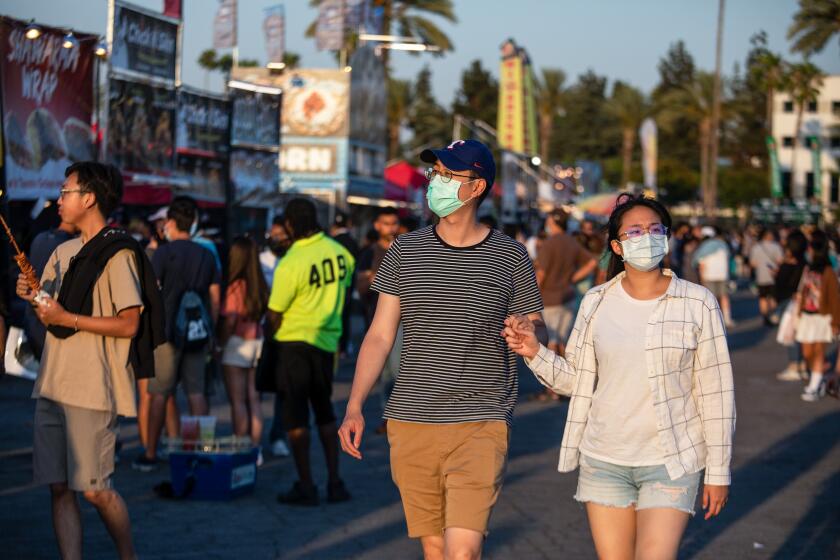South Korea to give out rapid tests amid galloping Omicron infections

- Share via
SEOUL — South Korea will distribute free coronavirus rapid test kits at schools and senior care facilities starting next week as it weathers an unprecedented wave of infections driven by the fast-moving Omicron variant.
Health officials Wednesday reported the country’s highest daily jump in coronavirus infections, with 90,443 new cases, shattering the previous one-day record set Tuesday by more than 33,000 cases. The figure represents a more-than-20-fold increase from the levels seen in mid-January, when Omicron emerged as the country’s dominant strain, and some experts say the country could see daily cases of around 200,000 in March.
While Omicron has so far seemed less likely to cause serious illness or death compared to the Delta variant, which rattled the country in December and early January, hospitalizations have been creeping up because of the greater scale of the outbreak.
Prime Minister Kim Boo-kyum, South Korea’s No. 2 official behind President Moon Jae-in, said officials would start giving out rapid tests next week at kindergartens, elementary schools and senior care facilities, including nursing homes and neighborhood welfare centers, to strengthen protection for unvaccinated children and high-risk groups.
Education Minister Yoo Eun-hye said schools would be getting enough kits for students to use twice a week, but added that such tests wouldn’t be mandatory.
“We ask for students to be tested at home with the rapid antigen test kits on the evenings of Sunday and Wednesday before coming to school,” Yoo said during a briefing. “When testing positive from those tests, please visit the local health office to get PCR tests.”
The federal website providing free at-home COVID-19 tests is open for orders. Here is how to order the tests, and what you need to know.
Health workers have diagnosed a daily average of 60,230 new coronavirus cases in the last seven days, which translates to 116.64 infections per 100,000 people, as the national caseload grew to more than 1.55 million.
The fast-developing Omicron surge has left officials debating whether the country should maintain strict social-distancing rules, including a six-person limit on private social gatherings and a 9 p.m. curfew for restaurants.
Struggling business owners have called for the measures to be removed, questioning whether they are meaningful when cases are growing rapidly.
But health experts warn that easing social distancing may allow transmissions to veer further out of control, which would stretch worn-out health and government workers and threaten high-risk groups and children under 12, who have yet to be vaccinated.
People can go without face coverings outdoors, including at K-12 schools, childcare facilities and in exterior areas of ‘mega’ events.
The country had already eased quarantine restrictions significantly starting this month to prevent major disruptions at workplaces and essential services, which may occur if huge numbers of people are constantly placed under quarantine.
There are also concerns that transmissions could worsen as campaigning and political rallies began Tuesday ahead of the March 9 presidential election.
Kim said officials would consider both the pandemic’s growing economic strain and threats posed by the Omicron surge before announcing new social-distancing measures Friday.
While Omicron more easily infects those who have been vaccinated or had COVID-19 previously, experts say vaccination and booster shots still provide strong protection from serious illness and death.
Start your day right
Sign up for Essential California for the L.A. Times biggest news, features and recommendations in your inbox six days a week.
You may occasionally receive promotional content from the Los Angeles Times.
More than 86% of South Koreans have been fully vaccinated, and 58% have received booster shots. Health officials plan to offer fourth shots at nursing homes and other long-term care settings starting later this month.
The country also started offering Novavax’s COVID-19 vaccine at hospitals and public health offices this week, adding another tool in a mass-immunization campaign that has mainly depended on Pfizer’s and Moderna’s vaccines, which use mRNA technology.
Officials hope that the Maryland company’s protein vaccine, which is similar to shots used for years against the flu or hepatitis B, would appeal to people who have been hesitant to use other vaccines based on newer technologies.
More to Read
Sign up for Essential California
The most important California stories and recommendations in your inbox every morning.
You may occasionally receive promotional content from the Los Angeles Times.















